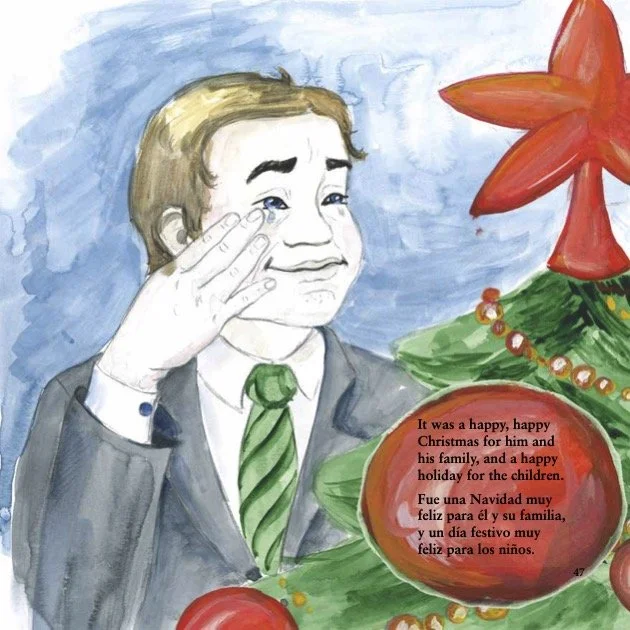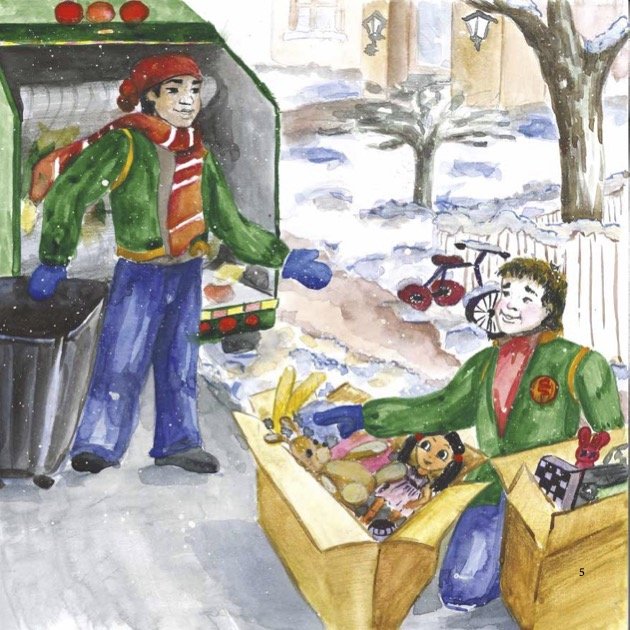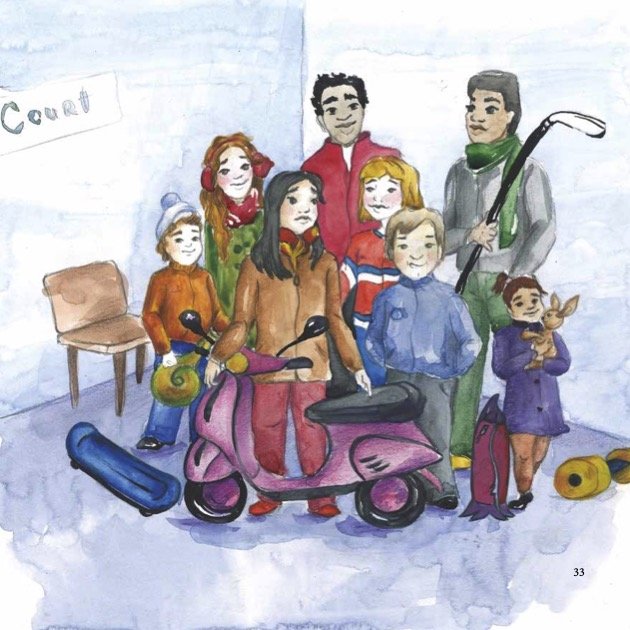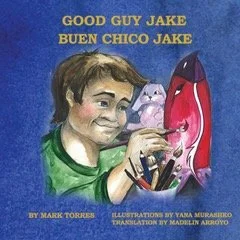Good Guys Don’t Finish Last—If They Have a Militant Union Behind Them
By Joe Maniscalco
You know the old saying, “Good guys finish last.” Even at Christmas.
But whoever said that didn’t have a fighting labor union behind them well prepared to work a little holiday magic on behalf of the rank & file.
Labor attorney and author Mark Torres invokes both the militancy of the movement and the merriment of the holiday season in his delightful Christmas story for kids from Hard Ball Press called, “Good Guy Jake.”
Jake is a Sanitation Worker from New York City and a member of the United Street Cleaners Union [USCU] who for years has been pulling discarded toys from the trash, fixing them up like new à la “Santa’s Little Helper,” and donating them to children celebrating their Christmas at the local homeless shelter.
One day in December, Jake runs afoul of a neighborhood Scrooge in a fancy car who doesn’t appreciate being held up for two minutes while Jake hops out of his garbage truck to rescue a few more broken toys from the curb.
Jake picks up broken toys left on the curb for collection.
The guy wastes no time snapping up pix of Jake “breaking the rules” and sends them off to the authorities in cynical protest. The next day, Jake is summarily fired from his longtime job.
“Jake, you are a good worker, but a man complained that you were blocking traffic because you were taking toys from the garbage…Jake, you know that is against the rules, right?” Jake’s manager tells him.
“Hey, that ain’t right,” you’re probably saying to yourself right now.
That’s certainly the innate reaction Torres wants to draw from his young readers. He also wants them to understand that labor unions like the one that represents Jake protect good people from bad things—good people that children often see picking up the garbage or cleaning the sidewalks in their own neighborhoods.
Warmly illustrated by Yana Murashko and translated into Spanish by Madeline Arroyo Romero, “Good Guy Jake” introduces children to core union concepts in terms they can easily understand and enjoy.
Chief among them is the idea that workers covered by a union contract can file a “grievance” when bosses try to deny them of their rights.
The neighborhood Scrooge gets mad because Jake’s garbage truck is momentarily blocking the road.
After Jake is fired from his Sanitation job, he immediately goes to his union representative who helps him file a grievance in a bid to get back his job.
When the bosses still refuse to give Jake back his job—his union representative files for “arbitration” and a further opportunity for Jake to argue his case.
But the arbitration process isn’t enough to get Jake back his job—the deck is still stacked too high against him. The bosses have lawyers, too, and their whole raison d'ê·tre is to help mean bosses do very bad things to hard-working people like Jake.
Things look bleak, indeed, for Jake one week before Christmas at his arbitration hearing. Rules are rules, and Jake has clearly broken them by pulling broken toys from the trash and blocking traffic.
But then, Torres has Jake’s labor lawyer do something magical that goes far beyond the constraints of the normal arbitration process.
Children from the local homeless shelter bring some of the toys that Jake has repaired into the arbitration hearing.
In a scene that is straight out of Miracle on 34th Street, the homeless children who’ve been the recipients of Jake’s kindness and generosity march into the hearing room, calling on the arbitration judge to give Jake back his job.
How many working people out there wish their arbitration cases were similarly handled?
“The first child said, ‘Hello, my name is Olivia. I am here because I heard that Jake was fired from his job,” Torres writes. “‘Jake brought me this gift for Christmas.’ Olivia showed the judge a pink scooter. ‘Sometimes at the shelter we are sad. When Jake gave us gifts, it made us happy. He made us feel loved.’ The second child showed the judge a shiny green bicycle. He said, ‘Jake gave me this bicycle. Jake has a good heart. If he broke a rule, he should’t lose his job because he was trying to do something nice. Please give him a second chance.’”
The arbitration judge has no other choice but to admit, “There are times when a rule is broken for a good reason”—another startling good message to instill in children.
It’s a Christmas miracle—Jake gets his job back!
Torres solidifies the learning experience with a list of pertinent questions following the conclusion aimed at helping prompt parents, teachers, and librarians to further engage with children about the story they’ve just read.
Some of those prompts include, “If the Sanitation Workers in the story did not have a union, do you think Jake would have won his job back? If not, why not?” and “Can you name other public employees you see as you go about your day?
What a gift…an illustrated children’s book that teaches kids they never have to feel powerless in the face of dumb, stupid bosses or heartless cranks.
Merry Christmas to all!





